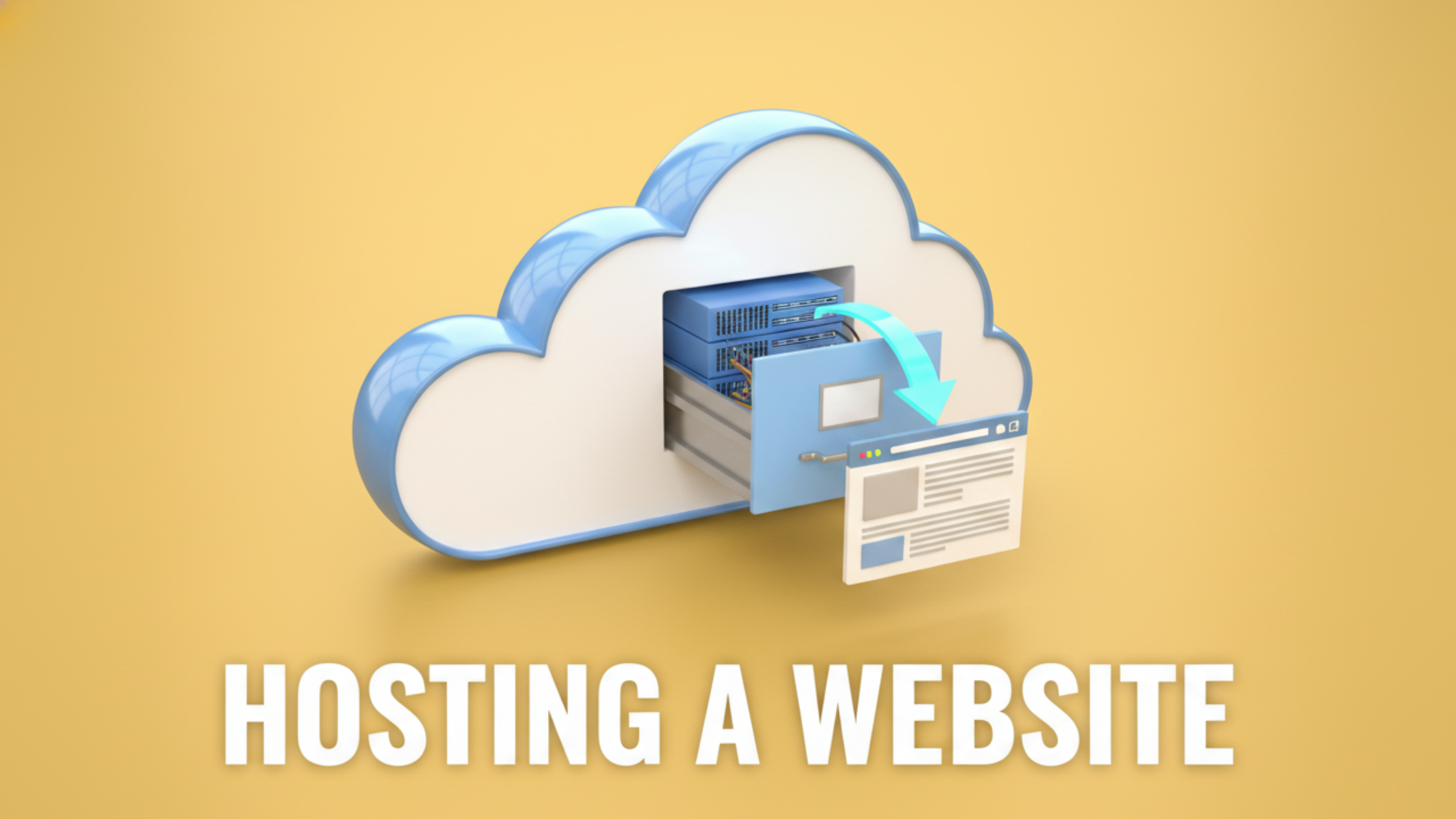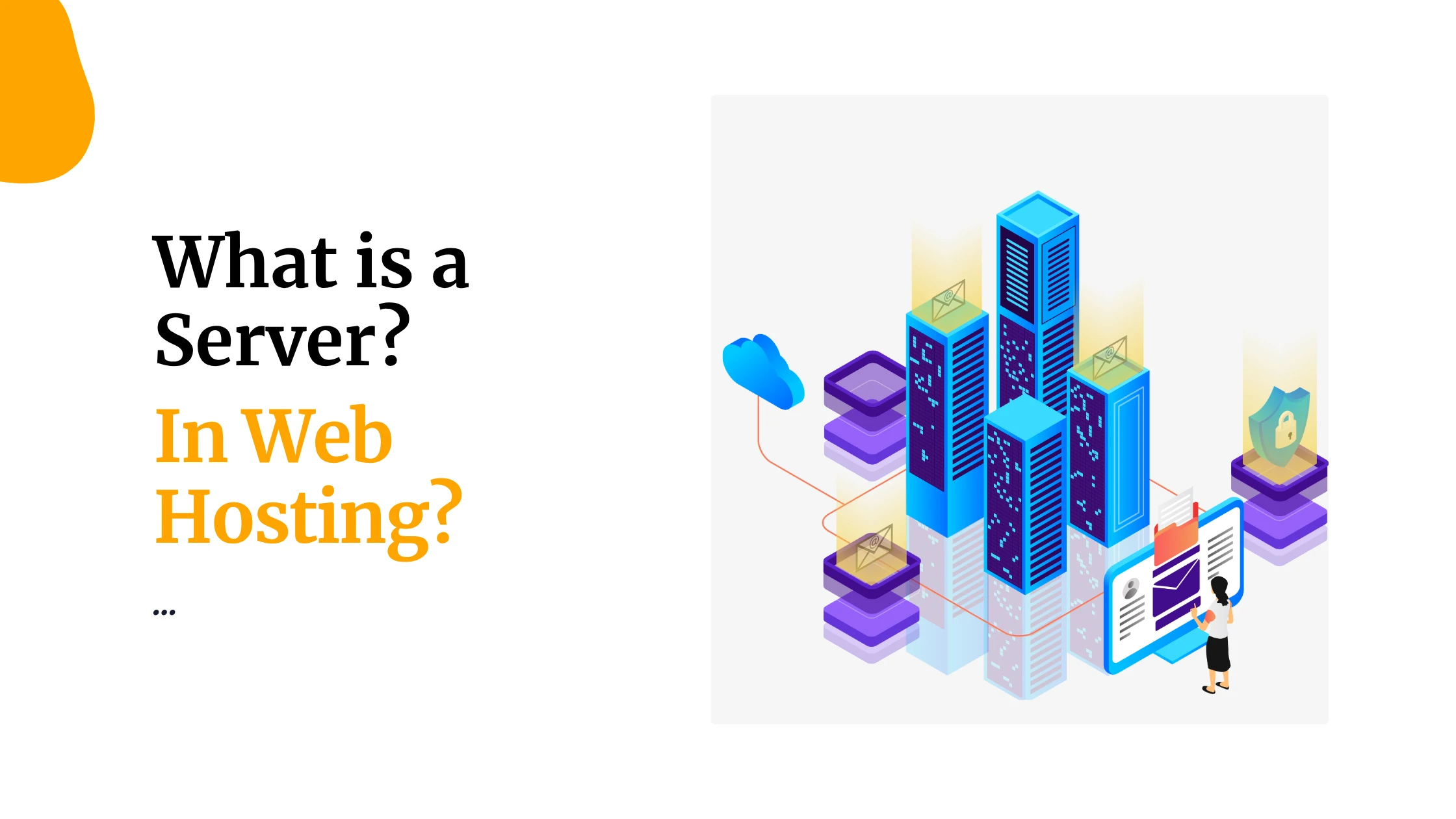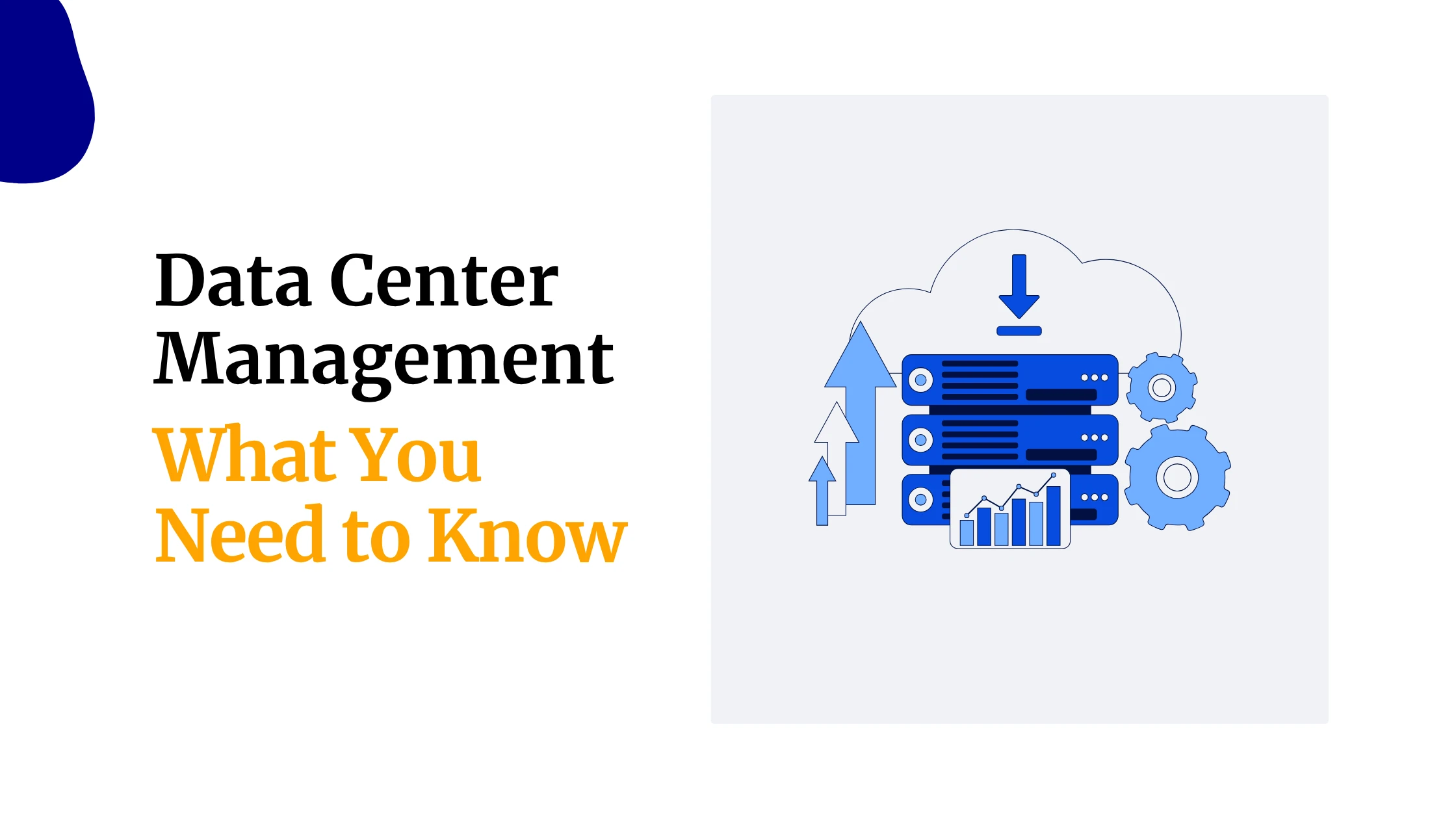When you want to build a website, there are several options you could use to host it.
You could go with:
- Shared hosting
- Cloud hosting
- VPS hosting
- WordPress hosting or
- Dedicated hosting.
All these types of hosting use hosting infrastructure differently.
Cloud hosting and VPS hosting, for instance, build virtual servers on top of your physical server, WordPress hosting is specialized for WordPress while shared hosting involves hosting different websites on the same server.
Dedicated hosting, on its own league involves hosting one website on one server. Hence the name dedicated.
So, a dedicated server is allocated to you if you’re on a dedicated hosting plan.
And since the server is allocated to one individual or organization privately, you have full control over how you configure it, how much bandwidth you use, and which software you wish to install.
But this freedom comes with the added responsibility of backups, security updates, and software updates.
In this post, we will discuss why you might need a dedicated server, its advantages and disadvantages, types of dedicated servers, and why you should set up a dedicated server with Truehost.
Let’s go into more detail about this topic below.
How does a dedicated server work?
Like other hosting solutions, dedicated hosting leverages servers, which essentially are physical machines located in large data centers.
It’s possible to own a dedicated server and house it on your business premises, but there‘s a reason most people and even companies don’t do it:
- they are expensive to set up,
- you need to consider cooling and power backup infrastructure which is costly to set up,
- you also need to invest in high-speed internet, and
- provide enough security on your work premises.
As you can imagine, this can quickly spiral into a very expensive and nonsustainable venture.
On the other hand, it’s possible to buy a server and rent space at a data center to house it for you.
This way, you’ll only incur the cost of the server while taking advantage of the security, cooling, internet, and backup provided by the data center.
Whatever the case, whether you own or rent a dedicated server, the fact remains that only you can have access to it.
When you rent a dedicated server,
- The web host prepares one based on the OS, storage, CPU, and RAM options you specify and gives you remote access to it. You’ll get SSH access for Linux servers or a remote desktop if using a Windows server.
- Once you have access, you can then install web server software, firewalls, storage partitions, and set up permissions.
- You can then run anything on your dedicated server, from websites to apps and virtual machines. You can also adjust server settings, upgrade server resources, and set up any security measures you need.
- If you’re not running on a managed service, you’ll be responsible for monitoring the performance of your server and for maintenance.
This means you’ll need to oversee backups, software updates, security, and system updates.
As long as you’re doing all the required maintenance, your websites or applications should load and perform stably even when traffic peaks.
Types of Dedicated Servers: Managed vs Unmanaged Dedicated Servers
When choosing a dedicated server, you’ll need to decide whether to go with a managed or unmanaged server.
The main difference between these two types of servers is in who is responsible for server management and maintenance.
Unmanaged Dedicated Servers
With this option, you will rent the server from a host, but you’ll be responsible for managing and maintaining it.
The web host will set up the physical hardware and install the operating system (OS) you choose, but beyond that, you’ll have to handle all configurations, security updates, and monitoring performance.
An unmanaged dedicated server is cheaper because you’re handling all tasks yourself. You also have complete control over the server environment.
But, you need technical skills to run one, so only choose unmanaged dedicated servers if you are a developer, IT professional, or a business with IT professionals who are comfortable managing servers.
Managed Dedicated Servers
On the other hand, if you want a hands-off experience over your server (maybe because you don’t have the time or technical skills to do it yourself), a managed dedicated server is a great option.
With this option, the web hosting provider will set up the server hardware and OS and also handle its daily management.
This means you don’t have to worry about software installations, backups, security patches or performance monitoring because they’ll handle it all for you.
A managed server costs more than an unmanaged server, but it’s worth it considering everything is done for you. We’re talking about moving from around kes. 500 per month for web hosting, to kes. 9000 per month (or more for high-end configurations) for dedicated hosting.
You can check out dedicated server plans from Truehost.
Beyond managed and unmanaged servers, dedicated servers also vary by use case, as shown in the table below:
| Type of Dedicated Server | Description And Use Case |
| High-performance dedicated server | Built for demanding workloads like enterprise software, big data, or scientific computing. They have high-end CPUs, large RAM, SSDs, and strong bandwidth. Best where speed and uptime are critical. |
| Email dedicated server | Come with ample RAM, storage, and spam protection to handle heavy email usage. They are designed to ensure reliable, secure, and fast communication regardless of email loads. |
| Website and web application dedicated server | These host websites and apps and are ideal for businesses that need a stable, responsive online presence. |
| Unmetered dedicated server | Comes with fixed bandwidth but no data transfer limits to eliminate concerns about overage charges or throttling. Great for high-traffic or data-heavy workloads. |
| Storage-optimized dedicated server | Tailored for large-scale storage needs. Uses HDDs for capacity and SSDs for speed. Great for data archiving, backups, and big data use cases. |
| GPU-dedicated server | Equipped with powerful GPUs for tasks like AI, ML, video rendering, and 3D simulations. Great for high-performance visual or scientific applications. |
| Game hosting-dedicated server | Designed for online gaming. They ensure low latency, fast CPUs, and DDoS protection. Great for smooth multiplayer performance even as the number of players increases. |
| Database dedicated server | Built for handling large databases with high data I/O (input/output) demands. They offer strong CPUs, large RAM, fast storage, and data redundancy to support data-intensive environments. |
When Would You Need a Dedicated Server?
You need a dedicated server if:
a) Your site keeps crashing when you need it most
Your site might perform stably when traffic is low, but if an increase in traffic during events such as a product launch or a promotion causes the website to go down, it’s time to upgrade to a dedicated server.
You might not even have noticed the performance drop because your site probably didn’t go down. But page loading times might have gone up tremendously.
Check your site analytics during Christmas, New Year’s, or other events you’ve run on your site to confirm if there were any performance issues. These aren’t just technical hiccups. Site downtime or slow page-loading is money walking out the door.
b) You handle sensitive information
If you process payments, store customer data, or deal with anything that requires compliance (think GDPR, HIPAA, or PCI DSS), sharing server space could leave you open to virus attacks.
c) You need specific software or configuration control
Configuration allows you to optimize the server to support your specific use case.
With a dedicated server, you can run custom software, control resource allocation, and configure server ports to handle traffic from specific applications.
You can also control how your site handles traffic loads and uses memory.
On a shared server, you’re stuck with whatever configurations the hosting company allows.
d) Performance directly impacts your profits
Imagine what things might be like for e-commerce stores like Jumia and Kilimall.
Neither business can afford to have slow page loading times because people could easily find the same item on the competitor’s website.
If you have competitors, every second your website takes to load costs you customers.
Even without competitors, there’s no need to lose traffic that’s already on your website. They got there somehow, so retain them to make a sale.
Benefits of a Dedicated Server
Here’s what dedicated hosting does for your business:
1) Full control over server configuration
You get root-level access.
This means you can:
- Install any OS (Linux, Windows Server, etc.)
- Configure firewalls, software stacks, and scripts
- Set up custom security and caching rules
It’s your server. You decide how it runs.
2) Guaranteed performance
No noisy neighbors. No shared resources.
You get:
- 100% of the CPU power
- Consistent RAM allocation
- Disk I/O and bandwidth solely for your use
Perfect for:
- High-traffic websites
- Large eCommerce stores
- Custom apps with complex backend logic
3) High-level security
A dedicated server minimizes attack surfaces. You’re not sharing space with others, so:
- No risk from compromised neighboring sites
- Easier to enforce strict access policies
- Full control over backups, SSL, and DDoS protections
It’s the top choice for businesses handling sensitive data like medical records, customer payments, or proprietary code.
4) Scalability for growth
As your project grows, so can your server.
You can:
- Upgrade storage (HDD to SSD, RAID)
- Increase RAM or add more CPUs
- Shift to more bandwidth or IP allocations
You’re not boxed in like with shared or VPS hosting.
5) Custom environment for special use cases
Some apps need special tools or runtime libraries:
- Node.js, Docker, Kubernetes, Redis, Elasticsearch
- Custom PHP versions or .NET configurations
A dedicated server lets you build and optimize for those exact needs.
6) Better uptime and reliability
You’re the only tenant.
That eliminates performance bottlenecks caused by others and allows:
- Dedicated monitoring tools
- Private reboot access
- Full recovery control
If your website or app must be online 24/7, this is your solution.
7) Improved SEO and site performance
Google loves fast-loading, stable websites.
With no shared server delays or resource throttling:
- Page speed scores improve
- Crawling errors reduce
- Users stay longer (lower bounce rates)
8) Dedicated IP address
Unlike shared hosting, your IP isn’t tied to spammy sites or blacklisted domains.
This helps with:
- Email deliverability (less chance of landing in spam)
- SSL certificate installation
- Reputation management (especially for agencies)
9) Compliance and data sovereignty
If you’re handling regulated data (e.g. GDPR, HIPAA), a dedicated server makes it easier to:
- Control where data is stored
- Implement strict compliance configurations
- Ensure audit-readiness
You pick the location, software, and security policies.
10) Hosting multiple projects securely
Running multiple applications or client sites?
With a dedicated server, you can:
- Separate projects via containers or virtual machines
- Allocate fixed resources per project
- Manage access roles per app or client
Great for SaaS startups, dev agencies, or resellers.
11) Cost savings at scale
If you’re scaling, running several VPSs becomes inefficient fast.
A powerful dedicated server can replace:
- 4–6 mid-tier VPSs
- Dozens of shared hosting plans
- Redundant cloud costs
And often at a lower long-term cost.
Summary Table
| Benefit | What You Gain |
|---|---|
| Full control | Custom OS, software, and root access |
| Dedicated performance | No sharing, consistent power |
| Enhanced security | Private environment, tighter policies |
| Scalability | Upgrade hardware as needed |
| Custom setups | Host any framework, library, or runtime |
| Uptime and reliability | 24/7 control, stability |
| SEO boost | Faster speeds, lower bounce rates |
| Dedicated IP | Better email and brand reputation |
| Regulatory compliance | Control data location and protection |
| Multi-project hosting | Efficient client and app management |
| Long-term cost efficiency | Cheaper than scaling VPS/cloud |
If you’re running a mission-critical application, scaling an agency, or need maximum control, a dedicated server is the gold standard.
Pair it with a reliable host like Truehost. We support both local and global servers.
Get a Dedicated Server: Is Your Business Ready for the Jump?
Ask yourself these questions:
- Do you handle sensitive customer data?
- Are you planning to launch a major marketing campaign, expand your product line, or enter new markets?.
- Is your current hosting stopping you from installing the software you need?
- If your website goes down for even an hour, would it significantly impact your revenue?
Why we get it right
When you’re ready to make the move, you need a hosting partner who understands business, not just technology.
Truehost has built our reputation on exactly this understanding.
What sets us apart?
- We are local, which means we understand the unique challenges that businesses in Kenya and the East African region face.
- Our support team speaks your language, both literally and figuratively. When you call with a problem, you’re talking to someone who understands your market, your challenges, and your goals.
- With our dedicated servers, you get bulletproof security and reliability, which lets you focus on growing your business instead of worrying about site performance.
- Cheapest yet reliable dedicated hosting plans in Kenya
 Domain SearchInstantly check and register your preferred domain name
Domain SearchInstantly check and register your preferred domain name Web Hosting
Web Hosting cPanel HostingHosting powered by cPanel (Most user friendly)
cPanel HostingHosting powered by cPanel (Most user friendly) KE Domains
KE Domains Reseller HostingStart your own hosting business without tech hustles
Reseller HostingStart your own hosting business without tech hustles Windows HostingOptimized for Windows-based applications and sites.
Windows HostingOptimized for Windows-based applications and sites. Free Domain
Free Domain Affiliate ProgramEarn commissions by referring customers to our platforms
Affiliate ProgramEarn commissions by referring customers to our platforms Free HostingTest our SSD Hosting for free, for life (1GB storage)
Free HostingTest our SSD Hosting for free, for life (1GB storage) Domain TransferMove your domain to us with zero downtime and full control
Domain TransferMove your domain to us with zero downtime and full control All DomainsBrowse and register domain extensions from around the world
All DomainsBrowse and register domain extensions from around the world .Com Domain
.Com Domain WhoisLook up domain ownership, expiry dates, and registrar information
WhoisLook up domain ownership, expiry dates, and registrar information VPS Hosting
VPS Hosting Managed VPSNon techy? Opt for fully managed VPS server
Managed VPSNon techy? Opt for fully managed VPS server Dedicated ServersEnjoy unmatched power and control with your own physical server.
Dedicated ServersEnjoy unmatched power and control with your own physical server. SupportOur support guides cover everything you need to know about our services
SupportOur support guides cover everything you need to know about our services








